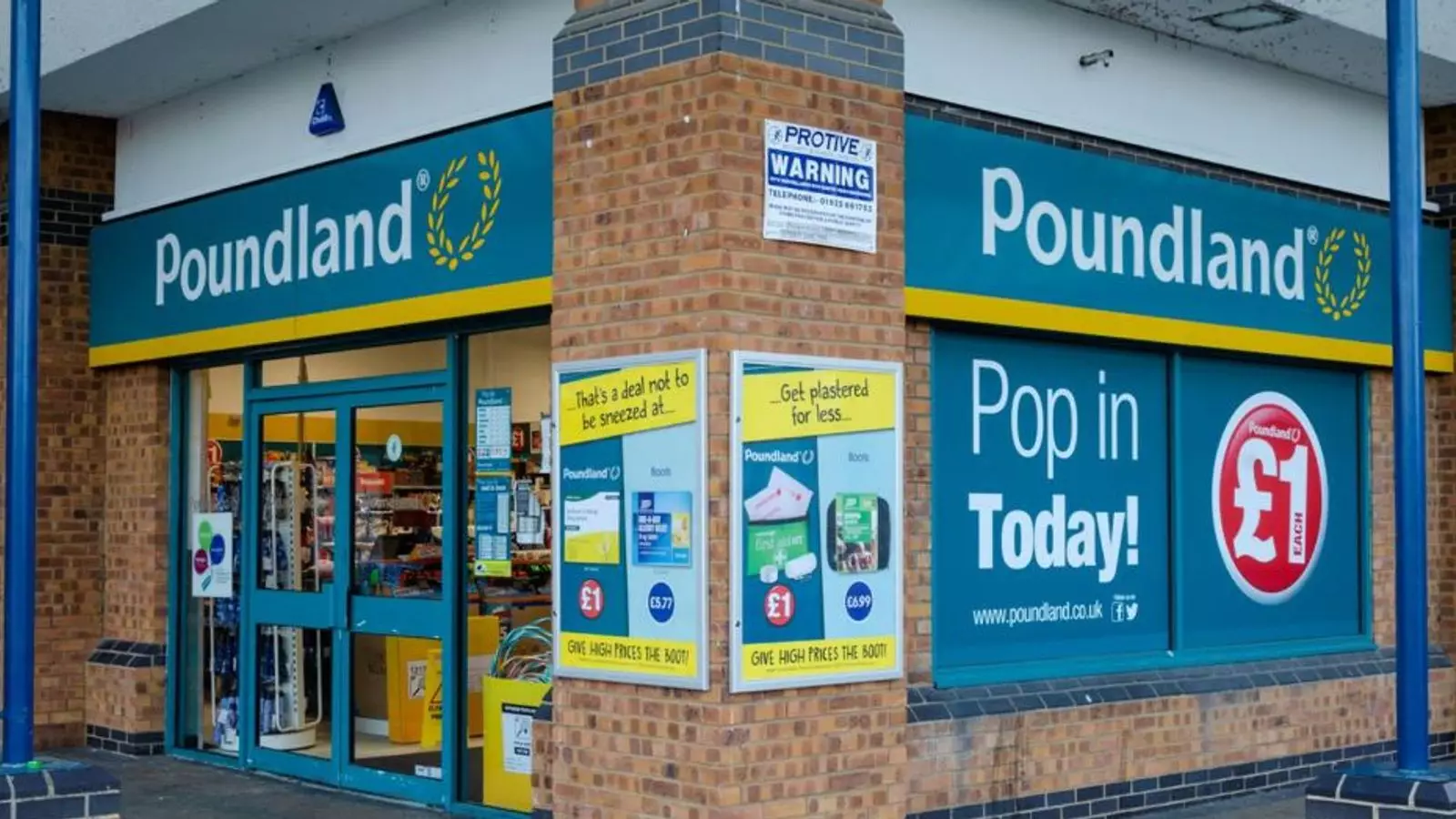Poundland, a prominent figure in Britain’s retail landscape, is currently navigating turbulent waters characterized by a significant decline in sales. Owned by Pepco Group since 2016, the discount retailer is confronting an alarming slump in consumer interest, evidenced by a reported 7.3% drop in like-for-like sales during the crucial Christmas trading period. This downturn has raised serious concerns regarding the future viability of Poundland, prompting the company to enlist the expertise of City advisers, specifically the consulting firm AlixPartners. The hiring of such consultants indicates that Poundland is not merely experiencing typical fluctuations in retail performance; rather, it may be facing an existential crisis that necessitates drastic intervention.
Recent developments suggest that the engagement of AlixPartners may lead to a comprehensive restructuring process aimed at revitalizing Poundland’s operations. Among the possibilities being explored are options like a company voluntary arrangement or even the unsettling prospect of store closures. While Pepco Group has reassured stakeholders that no immediate decisions have been made, the very act of evaluating these options implies significant concern over the chain’s financial health. This approach reflects a broader trend in the retail sector, where adaptability and strategic pivots are imperative in the face of erratic consumer behavior and rising operational costs.
Poundland operates in a highly competitive environment, contending not only with discount rivals such as B&M and Home Bargains but also with major supermarket chains that have increasingly adopted low-price strategies. Despite boasting an extensive network of 825 stores and a workforce of approximately 18,000, the company is grappling with margin pressure and escalating operational costs. The seemingly relentless competitive pressure has magnified underlying vulnerabilities, driving the company to reassess its operational model and customer proposition.
The financial backdrop for Poundland is disconcerting. In the previous year, the chain recorded sales close to €2 billion, a figure that is now in jeopardy as decreasing footfall translates into lower revenue. The contrast between Poundland’s woes and the performance of its parent company, Pepco Group, which has seen strong sales growth through its other brands, warrants a critical examination. The divergence in performance raises essential questions about strategy, market positioning, and brand identity.
Stephan Borchert, CEO of Pepco Group, has reiterated that “every strategic option” will be considered to restore Poundland to its core strengths. The focus currently rests on a detailed evaluation of operational costs and a broader competitive positioning analysis. While a commitment to enhancing product ranges, especially in fast-moving consumer goods (FMCG) and general merchandise at traditional price points, is a positive first step, it remains uncertain if these measures will be sufficient to arrest the ongoing decline.
As Poundland stands at this critical juncture, the road ahead seems fraught with challenges. The upcoming capital markets day, set for March 6, will likely serve as a pivotal moment for the business, potentially providing clarity on strategic plans. The appointment of AlixPartners heralds a period of introspection, demanding that the company not only identifies its weaknesses but also capitalizes on new opportunities to re-engage with its customer base.
While the present scenario for Poundland is daunting, it is not without hope. By making data-driven decisions and re-evaluating its market positioning, there is potential for the discount retailer to not only weather this crisis but emerge stronger. The ability of Pepco Group and its leadership to act decisively will be crucial in determining the retailer’s long-term sustainability in an increasingly volatile marketplace.

Leave a Reply